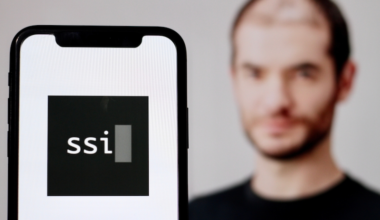Earlier this week, I was speaking with a founder from South Africa who recently launched an innovative alternative-banking app in the U.S. It’s a really cool idea, and the founder seems highly capable. During our meeting, he shared the challenges he faced in educating Americans about this particular approach to banking, which was popular in South Africa but unknown in the U.S.
He also mentioned that even when he acquired a new user, his product was not nearly as “sticky” here as it was in his home country, and he couldn’t figure out why. The conversation soon turned to the idea of pivoting his product for the U.S. market – a concept that is unfamiliar and even shunned in many other innovation ecosystems.
What is Pivoting?
Pivoting in the startup world refers to shifting to a new strategy. However, it doesn’t necessarily mean changing the whole company. There are different types of pivots, such as turning one feature of a product into the product itself, or focusing on a different set of customers by positioning a company into a new market or vertical.
Why Pivot?
One of the fascinating things that I have encountered when discussing pivots is the widespread belief that they should only be considered when all other options have been exhausted. It’s a mistake. When your startup is always playing catch-up; when there’s too much competition; when you hit a plateau; or when it’s just too hard to make sales or get users, you should pivot out of the situation.
What many founders, especially immigrant founders, forget is that if you have one thing that gets the most traction it might very well mean that your company should focus on that one thing. After all, a great product is achieved not when you can add all the features that you can add, but when you remove all the features that you can remove.
A recent survey of 150 founders by San Francisco-based startup Willbur Labs showed that 55% had to pivot to avoid failure, and 75% of those pivots were successful. That’s a lot, and the word on the street is that every single unicorn startup has pivoted at least once.
Here are some successful pivots you might have heard of:
Instagram pivoted from Burbn, a location-based check-in app, by focusing exclusively on its popular photo-sharing feature and rebranding itself.
Netflix began as a DVD rental service, later pivoting to streaming and creating its own content, allowing the company to stay competitive and provide better customer experiences.
Pinterest originated from Tote, a mobile shopping app, and changed its focus to let users display and share photo collections online after noticing customers’ enthusiasm for sharing their favorite items.
Slack, a popular workplace chat app, started as an online game called Glitch. They pivoted by harnessing the game’s built-in messaging technology for a broader audience.
The likes of YouTube, Uber, Groupon, Yelp, Shopify, and countless others have also pivoted. In fact, almost all other notable startups have pivoted at least once.
Is pivoting bad?
There is often a taboo surrounding the topic of pivoting, as if discussing it is akin to talking about failure. However, this mindset is unfortunate. While there is nothing wrong with failing, pivoting is actually quite different.
It involves adapting to the market, which is what every founder should strive for. As an immigrant entrepreneur you may face challenges that many Americans don’t, such as language barriers, cultural differences, and a lack of a professional network.
However, your unique insights into untapped markets or underserved communities, along with your distinctive skills, perspectives, backgrounds, and experiences, can give you a competitive advantage in the U.S.
Your different upbringing and thought processes are valuable assets — don’t squander them by being resistant or embarrassed to change. You can choose to be a stubborn founder, or a successful founder, but it’s rare to be both.
About the author
Michael Burtov is a serial venture-backed entrepreneur who has grown multiple startups from initial ideas to millions in revenue and venture funding. He has appeared on Shark Tank and his work has been covered in hundreds of major media outlets. He is also the subject of mini-documentaries by Discovery Channel and CNN’s “Great Big Story.” Additionally, Michael has worked with hundreds of high-growth startups to scale and fundraise, directly and through his involvement with leading innovation organizations including Harvard Business School, Harvard Innovation Labs, and the MIT Enterprise Forum. He is also the author of “The Evergreen Startup,” a popular book on early-stage startup fundraising. He holds multiple patents and has received several awards for his work, including the Edison Universe Edison Award, the TIME Magazine Best Inventions Award, The Business Journals Top Inventor Award, Brandeis University Alumni Entrepreneur Award, and the TechCrunch Disrupt Wildcard Award.








